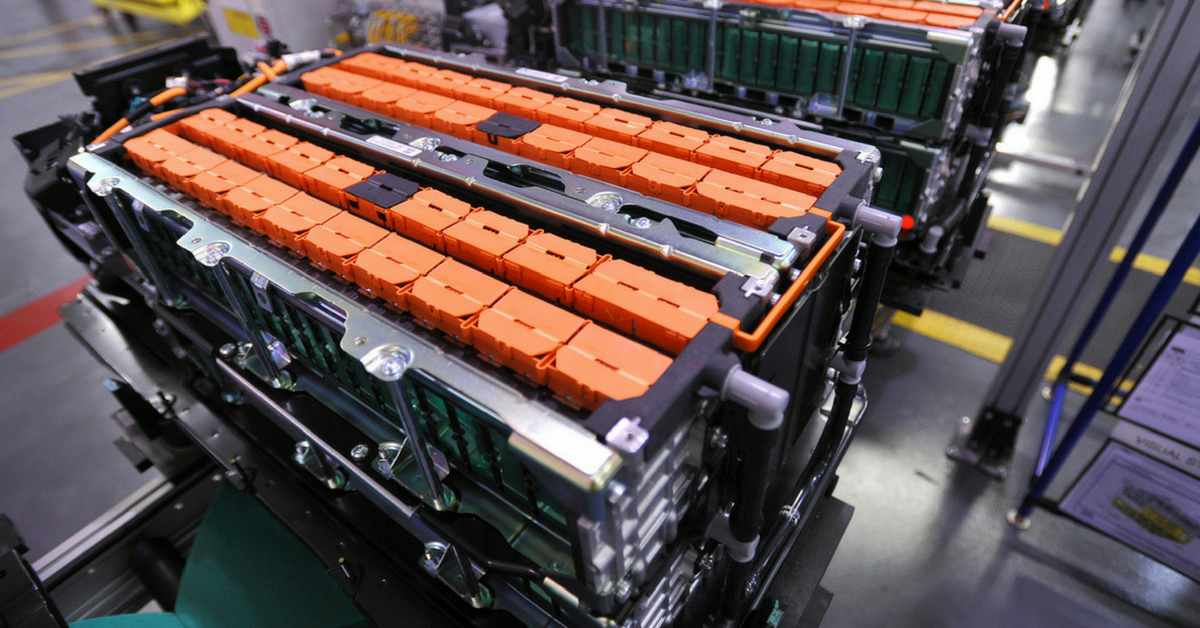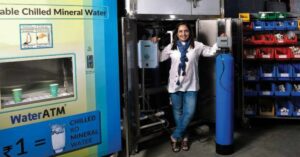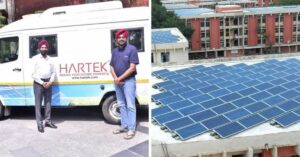Made In India’ Li-Ion Batteries Planned to End Dependence on Chinese Imports
India has depended on China for its Li-ion batteries, as the technology to develop one, wasn't yet procured. Untill now that is.

If you are reading this on your phone or your laptop, the chances are that it is being powered by a lithium-ion battery.
These batteries were first commercially used by Sony in their mobile phones back in 1991. Since then, their use has only grown tenfold, with over 33 billion batteries in use today!
Lithium batteries were very advantageous owing to their portability, efficiency and battery life. They have now made it to Electric Vehicles (EV) and are getting more efficient and powerful, year by year.
Currently, China is the global mass producer of all Li-ion batteries followed by the USA. India will soon join the race is with its first indigenous Li-ion battery plant.
Until now, India has depended on China for its Li-ion batteries, as the technology to develop one, is very secure. But now an Indian team of researchers have developed an indigenous technology to produce Li-ion batteries.
An MoU for the transfer of technology for India’s first Lithium-Ion (Li-ion) Battery project was signed today between CSIR’s Central Electro Chemical Research Institute (CECRI), Karaikudi, Tamil Nadu and RAASI Solar Power Pvt Ltd who will set up the manufacturing facility.

The technology has been developed by a group of scientists from CSIR-CECRI headed by Dr Gopu Kumar in partnership with CSIR-National Physical Laboratory (CSIR-NPL), New Delhi; CSIR- Central Glass and Ceramic Research Institute (CSIR-CGCRI), Kolkata; and the Indian Institute of Chemical Technology (CSIR-IICT), Hyderabad.
After the signing of the MoU, Harsh Vardhan, Minister of Science and Technology, told the Financial Express, “Today’s development is a validation of the capabilities of CSIR and its laboratories to meet technology in critical areas to support our industry, besides other sectors.”
As per the MoU, Raasi Group will set up Li-Ion manufacturing facility in Tamil Nadu’s Krishnagiri district. C Narsimhan, Chairman-cum-Managing Director, Raasi Group, told the publication, “We want to bring down the cost of cell manufacturing below Rs 15,000/- per KW to replace Lead Acid Battery.”
The production will not only provide independence from markets like China but will also increase the clean energy production in India.
Harsh Vardhan added, “It will give tremendous boost to two flagship programmes of Prime Minister Narendra Modi – increasing the share of Clean Energy in the energy basket by generating 175 Giga Watts by 2022, of which 100 Giga Watts will be Solar and the second, National Electric Mobility Mission, to switch completely to electric vehicles by 2030.”
But balancing the scales regarding foreign exchange, we would have to depend on countries like Bolivia, Argentina, Chile, Brazil, and Australia, to bring in raw lithium for the production. This would help us strengthen ties with other countries as well.
With hopes of sustaining the production in the future, Li-ion sees its use for various purposes. C Narsimhan concluded, “We also have plans to make Lithium-Ion battery for solar rooftop with lifespan of 25 years to make it affordable enough to drive the Photovoltaic segment.”
(Edited by Shruti Singhal)
Hey, you may also like: A Solar-Powered Way to Clean Polluted Rivers? These Students May Have Found It
Like this story? Or have something to share?
Write to us: [email protected]
Connect with us on Facebook and Twitter.
NEW: Click here to get positive news on WhatsApp!
This story made me
-
97
-
121
-
89
-
167
Tell Us More
We bring stories straight from the heart of India, to inspire millions and create a wave of impact. Our positive movement is growing bigger everyday, and we would love for you to join it.
Please contribute whatever you can, every little penny helps our team in bringing you more stories that support dreams and spread hope.



















